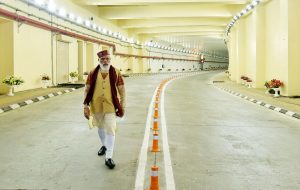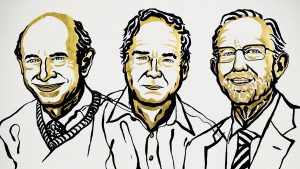
Tuesday, October 06, 2020
The HINDU Notes – 06th October 2020
THE HINDU NEWSPAPER IMPORTANT ARTICLES 06.10.2020

Click Here to Like our Facebook page for latest updates and free ebooks
FRONT PAGE
NATIONAL
INTERNATIONAL
OPINION
Geography by EG Classes PDF Download
Geography by EG Classes PDF Download
Insights IAS STATIC QUIZ – September 2020 (Monthly Compilation) in Hindi PDF
Insights IAS STATIC QUIZ – September 2020 (Monthly Compilation) in Hindi PDF
Insights IAS STATIC QUIZ – September 2020 (Monthly Compilation) PDF
Insights IAS STATIC QUIZ – September 2020 (Monthly Compilation) PDF
Monday, October 05, 2020
Daily Current Affairs, 05th October 2020

1) World Teachers’ Day: 5th October

•World Teachers’ Day is observed globally on 5th October since 1994. The day provides the occasion to celebrate the teaching profession worldwide, take stock of achievements, and draw attention to the voices of teachers, who are at the heart of efforts to attain the global education target of leaving no one behind.
•In 2020, World Teachers’ Day will celebrate teachers with the theme “Teachers: Leading in crisis, reimagining the future”.
2) PM Modi dedicates Atal Tunnel to the nation

•The Prime Minister of India, Narendra Modi has dedicated Atal Tunnel to the nation, on 3rd October 2020. In December 2019, the Government has decided to name the Rohtang Tunnel as Atal Tunnel in honour of the former Prime Minister and scholar Atal Bihari Vajpayee. The Atal Bihari Vajpayee government had taken the decision to construct a strategic tunnel below the Rohtang Pass on June 3, 2000, and the foundation stone for the access road to the south portal of the tunnel was laid on May 26, 2002.
3) World Space Week: 04-10 October

•World Space Week (WSW) is observed from October 4 to 10 every year to celebrate science and technology, and their contribution towards the betterment of the human condition. The 2020 theme is “Satellites Improve Life.”
4) India successfully test-fires “Shaurya Missile” from Odisha coast

•Defence Research and Development Organisation (DRDO) successfully test-fired a new version of the surface-to-surface nuclear-capable ballistic missile “Shaurya” at Balasore, off the coast of Odisha. The new version of the nuclear-capable missile can strike targets at a range of around 800 km. The missile would be lighter and easier to operate in comparison with the existing missile. It is an advanced version of Submarine Launched Ballistic Missile (SLBM) K-15 (B-05). It is 10 metres long, 74 cm in diameter and weighs 6.2 tonnes.
•The Defence Research and Development Organisation (DRDO) has been working towards completing total self-reliance in the field of strategic missiles and has enhanced its efforts further after the call of Aatmanirbhar Bharat by Prime Minister Narendra Modi in the defence sector earlier this year.
5) SBI appoints Charanjit Attra as CFO

•The State Bank of India (SBI) has appointed Charanjit Singh Attra as its new Chief Financial Officer (CFO) with effect from 01 October 2020. The post was lying vacant after the former Deputy MD & CFO Prashant Kumar, was appointed as the CEO of Yes Bank in March 2020. C Venkat Nageshwar was serving the post on interim capacity. Attra is a former Partner at global consulting firm EY India and had also served as the CFO at the ICICI Securities.
6) Nobel Prize in Physiology or Medicine 2020 announced

•The Nobel Prize in Physiology or Medicine 2020 was awarded jointly to Harvey J. Alter(America), Charles M. Rice (America) and Michael Houghton (Britain) for the discovery of the Hepatitis C virus. The head of the Nobel Committee, Thomas Perlmann has announced the winners in Stockholm. This year’s Nobel Prize is awarded to three scientists who have made a decisive contribution to the fight against blood-borne hepatitis, a major global health problem that causes cirrhosis and liver cancer in people around the world.
•Harvey J. Alter, Michael Houghton and Charles M. Rice made seminal discoveries that led to the identification of a novel virus, Hepatitis C virus. Prior to their work, the discovery of Hepatitis A and B viruses had been critical steps forward, but the majority of blood-borne hepatitis cases remained unexplained. The discovery of the Hepatitis C virus revealed the cause of the remaining cases of chronic hepatitis and made possible blood tests and new medicines that have saved millions of lives.
7) Right Livelihood Award 2020 announced

•The Right Livelihood Award Foundation has announced the four winners of the 2020 Right Livelihood Award 2020 which is also known as the alternative Nobel Prize in Stockholm.
•The four activists Ales Bialiatski of Belarus, Nasrin Sotoudeh of Iran, Bryan Stevenson of the United States(US) and Lottie Cunningham Wren of Nicaragua shared the 2020 award for their contribution towards equality, democracy, justice and freedom.




